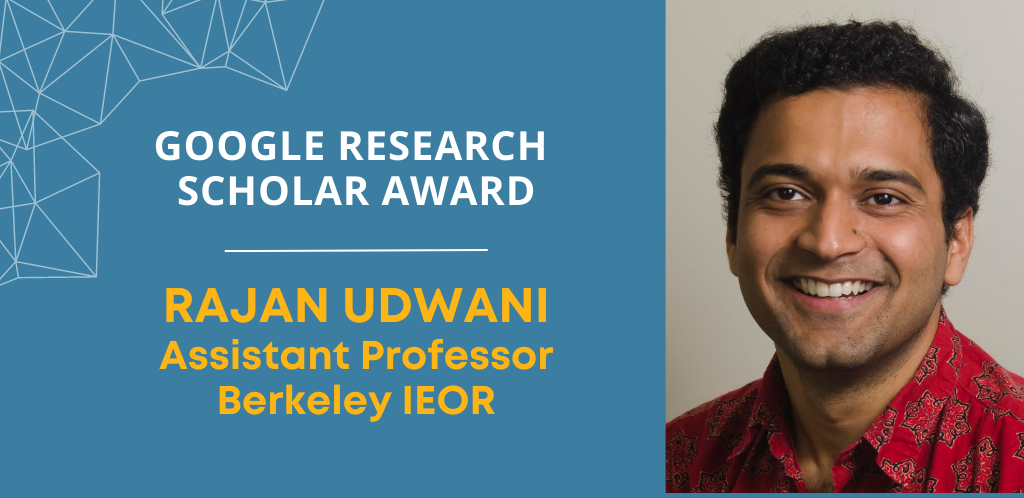Berkeley IEOR Professor Rajan Udwani Receives Google Research Scholar Award

Berkeley IEOR Professor Rajan Udwani has been awarded the highly competitive Google Research Scholar award for 2023-24 in recognition of his proposal on algorithms and optimization, titled “Generalized Framework for Prior-Free Online Resource Allocation.”
The Google Research Scholar Program supports research at institutions worldwide by providing unrestricted funding to promising early-career professors doing exceptional work in their fields. Proposals for the award undergo a rigorous, merit-based internal review process, and selected faculty can receive a Google Research Scholar award only once in their career. Upon receiving the award, the recipient is paired with a dedicated liaison from Google to share their findings and explore further opportunities for collaboration.
Udwani’s proposal focuses on online resource allocation, where a decision maker dynamically allocates resources to agents with varying preferences without any knowledge of future agents’ preferences (prior-free). His proposal aims to create a new model and algorithm that will be the standard for prior-free online resource allocation.
The abstract to the proposal is provided below.
Abstract
In online resource allocation, the decision maker dynamically allocates a finite inventory of resources to a sequence of agents with heterogeneous preferences. Every agent must be matched (irrevocably) on arrival without any knowledge of future agents’ preferences (prior-free). Inspired by numerous applications, customized algorithms with strong performance guarantees have been designed for a wide variety of settings ranging from online ad allocation to e-commerce fulfillment and volunteer matching for non-profits. The goal of this project is to propose a new model and algorithm, and establish it as the de facto standard for prior-free online resource allocation. The intended outcome is a single algorithmic result that, (i) Unifies the (state-of-the-art) results for previously studied settings and (ii) Generalizes the known art by capturing non-linear and combinatorial effects that are prevalent in emerging applications.